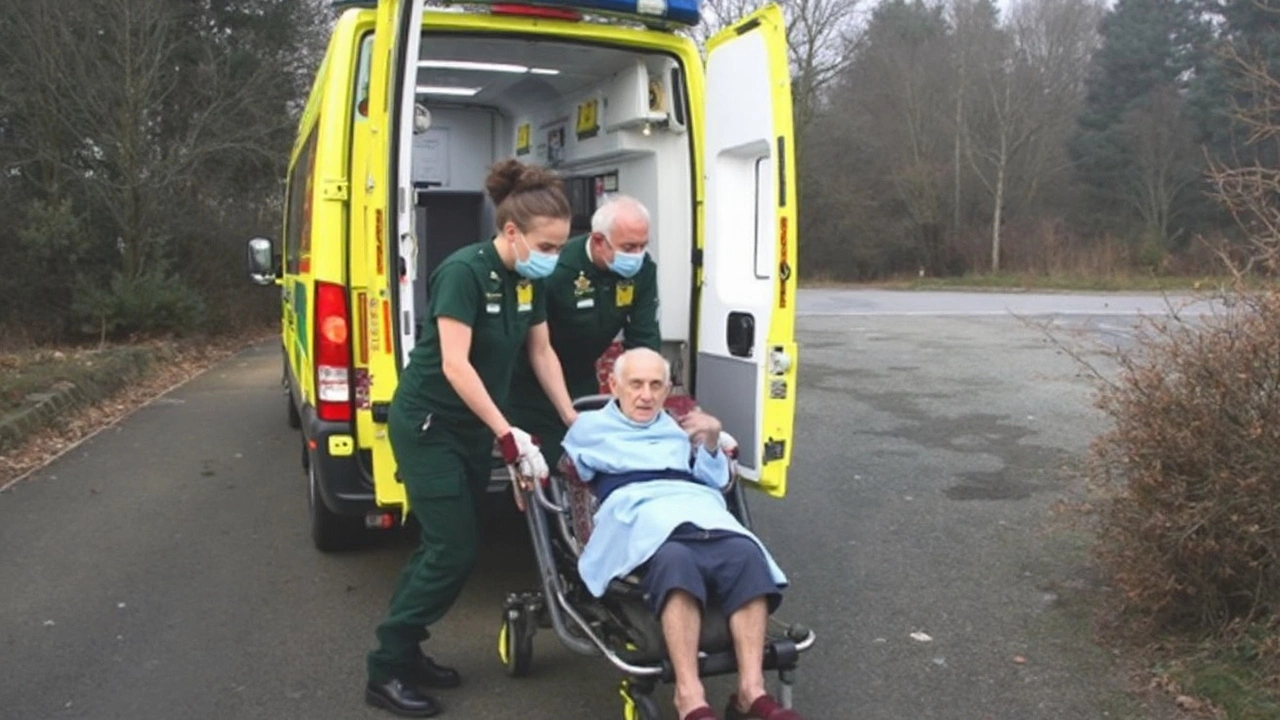Elderly Patients: Safe Swimming and Soccer Tips
If you’re over 65 and love water or the pitch, you’re not alone. Many seniors find swimming and soccer keep them moving, boost mood, and protect joints. The trick is to stay safe while enjoying the game. Below you’ll find clear advice you can start using today.
Why Stay Active?
Regular movement helps blood pressure, bone density, and balance—all things that matter more as we age. Swimming gives a full‑body workout without stressing knees, while soccer adds quick bursts of cardio and coordination. Both sports can lower depression risk and give a social boost, which is vital for mental health. The key is to match activity level to what your body can handle right now.
Simple Safety Tips
Check health basics first. A quick chat with your doctor about heart health, joint issues, and medication side effects can prevent surprises in the pool or on the field.
Start with a warm‑up. Five minutes of gentle arm circles, leg swings, or marching in place raises body temperature and reduces muscle strain. It’s especially important before a swim because cold water can tighten muscles.
Choose the right gear. For swimming, pick goggles that fit snugly and a swim cap if you’re prone to head cold. For soccer, wear shoes with good ankle support and breathable socks.
Mind the water depth. Stick to shallow zones where you can touch the bottom if you feel light‑headed. If you need a float device, use a buoyancy belt rather than a life‑jacket that can restrict movement.
Stay hydrated. Seniors often forget to drink, yet dehydration can cause cramps or dizziness. Sip water before, during, and after sessions.
Watch the temperature. Warm pools (around 28‑30°C) feel comfortable, but overly hot water can raise heart rate too fast. For soccer, avoid the hottest part of the day; early morning or late afternoon is best.
Take breaks. Listen to your body. If you feel short of breath, sit down, catch your breath, and try again later. Over‑exertion can lead to falls or heart strain.
Practice fall‑prevention. In the pool, use handrails when entering or exiting. On the pitch, keep the field clear of debris and wear shin guards to protect lower legs.
Stay social. Join a local senior swim group or a low‑impact soccer club. Playing with peers adds fun and creates a safety net—someone will spot you if you need help.
By following these steps, you can keep swimming laps or kicking the ball without worrying about injuries. Remember, the goal isn’t to become a pro overnight; it’s to move a little more each week and enjoy the feeling of activity.
Ready to try? Book a trial swim session at your community pool or sign up for a beginner’s soccer clinic. Keep a notebook of how you feel after each session – you’ll quickly see improvements in stamina, mood, and confidence. Stay active, stay safe, and enjoy every splash and goal.
NHS ambulance crisis leaves 86‑year‑old in pain after TV warning
- Kieran Lockhart
- on Sep 25 2025
- 0 Comments
A Sky News ride‑along with West Midlands paramedics uncovered how the current NHS ambulance crisis forces vulnerable people to stay home. An 86‑year‑old man spent days nursing a bruised arm because TV ads told him to call 999 only for life‑or‑death emergencies. The crew’s 12‑hour shift highlighted delayed calls, record‑slow response times and a looming winter surge. Front‑line staff warn the pattern is unsustainable. Their experience shows the fine line between curbing non‑urgent calls and endangering those who truly need help.
